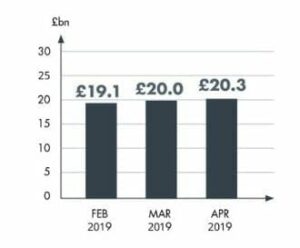As we bid farewell to 2022, many people will be delighted to see the back of it. After the trauma of the pandemic, 2022 was supposed to be the grand return of normal life and freedom. Instead, the economy suffered aftershocks of Covid and Russia’s invasion of Ukraine stung the markets. In response to the resulting cost of living crisis, the Bank of England raised interest rates 9 times. Between December 2021 and December 2022, the base rate increased from 0.1% to 3.5%.
These rises had a dramatic impact on mortgage rates. Not helped by the domestic political turmoil and the short-lived mini-budget, average fixed rates soared to over 5%. A buoyant housing market slowed down as many potential homeowners decided to let the dust settle.
So here we are at the start of 2023. What will the housing and mortgage market have in store for us this year?
What could happen to interest rates in 2023?
As always, we do not like to speculate about what will happen with factors out of our control. We can, however, provide the market expectations for interest rates throughout this year.
The Bank of England has a difficult balancing act on it’s hands. Economic growth is low and we are expected to be in recession now but are waiting for the figures to back that up. Inflation is still high but is falling.
The expectation is that we haven’t seen the peak of the base rate yet, but that this could happen around the middle of 2023. Experts such as Deutsche Bank predict that the peak base rate will be around 4.5%. Although this sounds very high, there was concerns after the mini-budget that we would need to see base interest rates north of 6%!
Once the base rate reaches the summit, the predictions are that the rate will stay this way until late 2023 or even into 2024 before coming back down slightly. Don’t expect rates to return to the abnormally low levels we have seen over the last decade, though.
Inflation and economic growth will be the driving factors behind the Bank of England decisions. If we see inflation fall faster than expected and our economy falls into a deep recession, then they will be pressured to reduce interest rates faster and encourage growth. If, however, inflation remains stubbornly high, interest rates will be maintained until the Bank of England inflation target of 2% is reached.
What does this mean for the mortgage market?
There is a period of adjustment taking place in the mortgage market and also for potential homebuyers. For years, the main concern for first time buyers has been securing enough of a deposit to unlock their ability to purchase their own home. With interest rates so low, affordability was not a huge concern once the initial downpayment was made. In this climate, things look very different. Not only is saving for a deposit made harder by inflation over 10%, but being able to afford repayments at current rates is a challenge.
For current homeowners looking to remortgage or move house, there is a shock factor when they see how much their monthly repayments will be increasing by. Millions of people’s fixed deals will run out in 2023 and these people will face the dilemma of what to do next.
The good news in recent times is that average rates are falling. Following the chaos of the mini-budget, lenders had no idea how high interest rates would go. Many pulled their products off the market as they waited and watched, while others stood firm that they must be available to lend at all times. As a result, the rates seen were more a case of having products on the market rather than being priced fairly. Average fixed rates were upwards of 6%
Now that the situation has calmed down somewhat, lenders have more certainty and can price their products accordingly. Despite the base rate rising further, the average rate is back below 6% and some lenders have even taken over 1% off their product ranges.
Fixed mortgage rates are priced based on future expectations. They went through the roof late last year because expectations were that the base rate would need to rise to over 6%. With a more positive outlook now, fixed rates have reduced.
Will they reduce further in 2023? It is impossible to tell. They are unlikely to go up any further from here, but any reduction would be gradual.
The positive aspect is that the lending market is far more stable than it was in 2008. During the global financial crisis, banks were being bailed out and the housing market was on the verge of collapse. With greater regulation in place, lenders are not in danger of folding and have ample funds to lend.
There is no doubt, affording a home in 2023 will be more challenging any time since 2008. Higher mortgage rates are here to stay for the foreseeable future.
What will happen to house prices in 2023?
When Covid arrived and the markets crashed, many expected issues for the housing market too. Instead, the stamp duty holiday was announced and house prices boomed due to unprecedented activity. This was helped by the rush to move out of major cities and into the countryside.
Now, though, the landscape looks very different. First time buyers will struggle to save a deposit, let alone afford their potential monthly repayments. Existing homeowners will be ending their fixed deals and wondering how they can afford a mortgage of the same size again. When a recession, cost of living crisis, and high interest rates combine, the outlook doesn’t look very rosy for the housing market. Throw in the fact that house prices appear inflated following the stamp duty holiday, and there is potential for house prices to fall.
Many experts predict that demand for housing is still very high and therefore the market is sufficiently resilient to maintain prices where they are. Others expect a fall in prices of around 10% during 2023.
If house prices do fall, it would be the one welcome bit of news for potential first time buyers. Elsewhere in the market, though, this news would be mixed.
Summary
In reality, the current interest rates reflect normality returning. After 14 years of low interest rates as a response to the global financial crisis, we are now seeing rates more similar to those of the 90s and 00s. The difference now though, is that house prices are higher as a proportion of average income. An average worker in the UK will be paying around 8 times their salary for a house compared to 20 years ago when they were paying 5 times their salary.
There are many challenges ahead for the mortgage market, but the overall good news is that the market is not going anywhere. It has seen worse days than these and will be better for it.
We are here to help you so if you have any questions about your situation then please don’t hesitate to get in touch. Our free initial consultation offers you the chance to discuss potential options and see if we can help you secure the property of your dreams.







